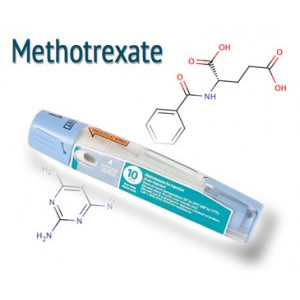
OTREXUP™ (methotrexate) injection was recently approved by the U.S. Food and Drug Administration.
It is indicated for adults with severe, active rheumatoid arthritis, or children with active polyarticular juvenile idiopathic arthritis who have failed first line therapies. It is also indicated for severe, recalcitrant, disabling psoriasis.

